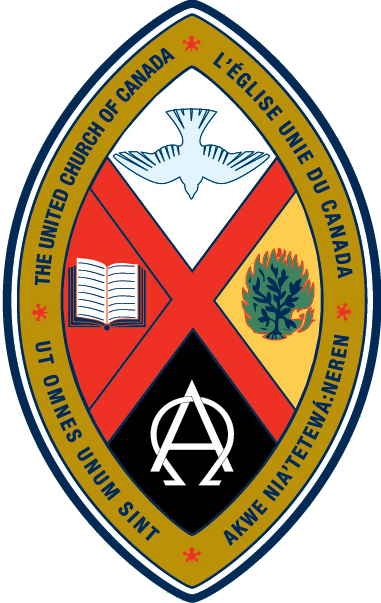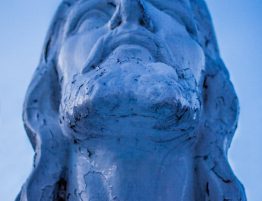
Bible Readings with Introductions
Sunday March 22, 2020 Fourth in Lent, Year A
Our readings this morning are among those assigned for this Fourth Sunday in the Season of Lent, Year A, by the Revised Common Lectionary. As we read these words from the Bible and contemplate their meaning for our walk with God, we are in the company of most other United Churches, many Presbyterian congregations, as well as all Anglican and Lutheran parishes. The use of the lectionary is a reminder to us that we are part of a worldwide community of those who are seeking to follow Jesus in the Way.
First Samuel 16.1-13
The Books of First and Second Samuel are part of the historic books in the Hebrew Scriptures. The events described in these books took place about 1000 years before the Common Era. They came into their present form at the time of the Babylonian Exile – following the destruction of Jerusalem and Solomon’s Temple by the Babylonian Empire – about 500 years before Jesus birth.
Using written materials and oral traditions – stories that had been told and retold over centuries around evening fires – these books were produced in order to help the Jews, far from home in a strange land, to understand who they were as God’s People.
These verses today tell the story of the selection and anointing of King David:
16.1 The LORD said to Samuel, “How long will you grieve over Saul, seeing I have rejected him from being king over Israel? Fill your horn with oil and go; I will send you to Jesse the Bethlehemite, for I have provided for myself a king among his sons.”
2 And Samuel said, “How can I go? If Saul hears it, he will kill me.” And the LORD said, “Take a heifer with you and say, ‘I have come to sacrifice to the LORD.’
3 And invite Jesse to the sacrifice, and I will show you what you shall do; and you shall anoint him whom I name to you.”
4 Samuel did what the LORD commanded and came to Bethlehem. The elders of the city came to him trembling, and said, “Do you come peaceably?”
5 And Samuel said, “Peaceably; I have come to sacrifice to the LORD; consecrate yourselves and come with me to the sacrifice.” And he consecrated Jesse and his sons and invited them to the sacrifice.
6 When they came, he looked at Eliab and thought, “Surely the LORD’s anointed is before him.”
7 But the LORD said to Samuel, “Do not look on his appearance or on the height of his stature, because I have rejected him; for the LORD sees not as mortals see; they look on the outward appearance, but the LORD looks on the heart.
Jesse brought each of his seven sons in turn to Samuel. Samuel was impressed, but each time God told him that this was not the one to be king.
11 And Samuel said to Jesse, “Are all your sons here?” And he replied, “There remains yet the youngest, but behold, he is keeping the sheep.” And Samuel said to Jesse, “Send and fetch him; for we will not sit down until he comes here.”
12 And Jesse sent, and brought him in. Now he was ruddy, and had beautiful eyes, and was handsome. And the LORD said, “Arise, anoint him; for this is he.”
13 Then Samuel took the horn of oil and anointed him in the midst of his brothers; and the Spirit of the LORD came mightily upon David from that day forward. And Samuel rose up and went to Ramah.
The Gospel of John 9.1-12
Biblical scholars agree that the Gospel of John was written near the end of the First Century of the Common Era – sometime between the years 80 and 100 CE. This Gospel, written in Greek, came out of the community that had grown up around the disciple John – brother of James and son of Zebedee – a Galilean fisherman. (The mother-tongue of the disciples and of Jesus was Aramaic, rather than Greek.)
The Gospel came into being at the time when the infant church was emerging from its roots in the Synagogue.
Our reading this morning is the story of the healing of a man born blind.
9.1 As Jesus passed by, he saw a man, blind from birth.
2 The disciples asked Jesus, “Rabbi, who sinned, this man or his parents, that he was born blind?”
3 Jesus answered, “It was not that this man sinned, or his parents, but that the works of God might be made manifest in him.
4 We must work the works of him who sent me, while it is day; night comes, when no one can work.
5 As long as I am in the world, I am the light of the world.”
6 As Jesus said this, he spat on the ground and made clay of the spittle and anointed the man’s eyes with the clay,
7 saying to him, “Go, wash in the pool of Siloam.” (which means Sent). So, he went and washed and came back seeing.
8 The neighbours and those who had seen him before as a beggar, said, “Is not this the man who used to sit and beg?”
9 Some said, “It is he”, others said, “No, but he looks like him.”
He said, “I am the man.”
10 They said to him, “Then how were your eyes opened?”
11 He answered, “The man called Jesus made clay and anointed by eyes and said to me, ‘Go to Siloam and wash’; so, I went and washed and received my sight.”
12 They said to him, “Where is he?” The man replied, “I do not know.”
Psalm 23, VU#747
The Book of Psalms is the oldest Hymn Book in continuous use in both Judaism and Christianity. These songs have been sung regularly for over 2500 years – both in their original Hebrew, and likely in every language around the world.
If you have a copy of Voices United at home with you, and if you have a piano, you might try playing and singing the Psalm. Perhaps many of you know this old tune “Crimond” from memory. It is quite singable. I invite you to sing it – knowing that as you do others, around the world will be singing these same words:
1. The Lord’s my Shepherd, I’ll not want; he makes me down to lie in pastures green; he leadeth me, the quiet waters by.
2. My soul he doth restore again; and me to walk doth make within the paths of righteousness, even for his own name’s sake.
3. Yea, though I walk in death’s dark vale, yet will I fear no ill; for thou art with me; and thy rod and staff me comfort still.
4. My table thou hast furnished in presence of my foes; my head thou dost with oil anoint, and my cup overflows.
5. Goodness and mercy all my life shall surely follow me; and in God’s house for evermore my dwelling place shall be.
Words: Scottish Psalter 1650 Music: Jessie Seymour Irvine 1872
Prayer for Illumination
Kind Creator, Compassionate Friend, Every-Present Spirit move among us and within us now as we ponder these words from the Bible. Open our eyes that we may understand the meaning of these verses and put their truth into action as we follow Jesus in the Way of Compassion.









